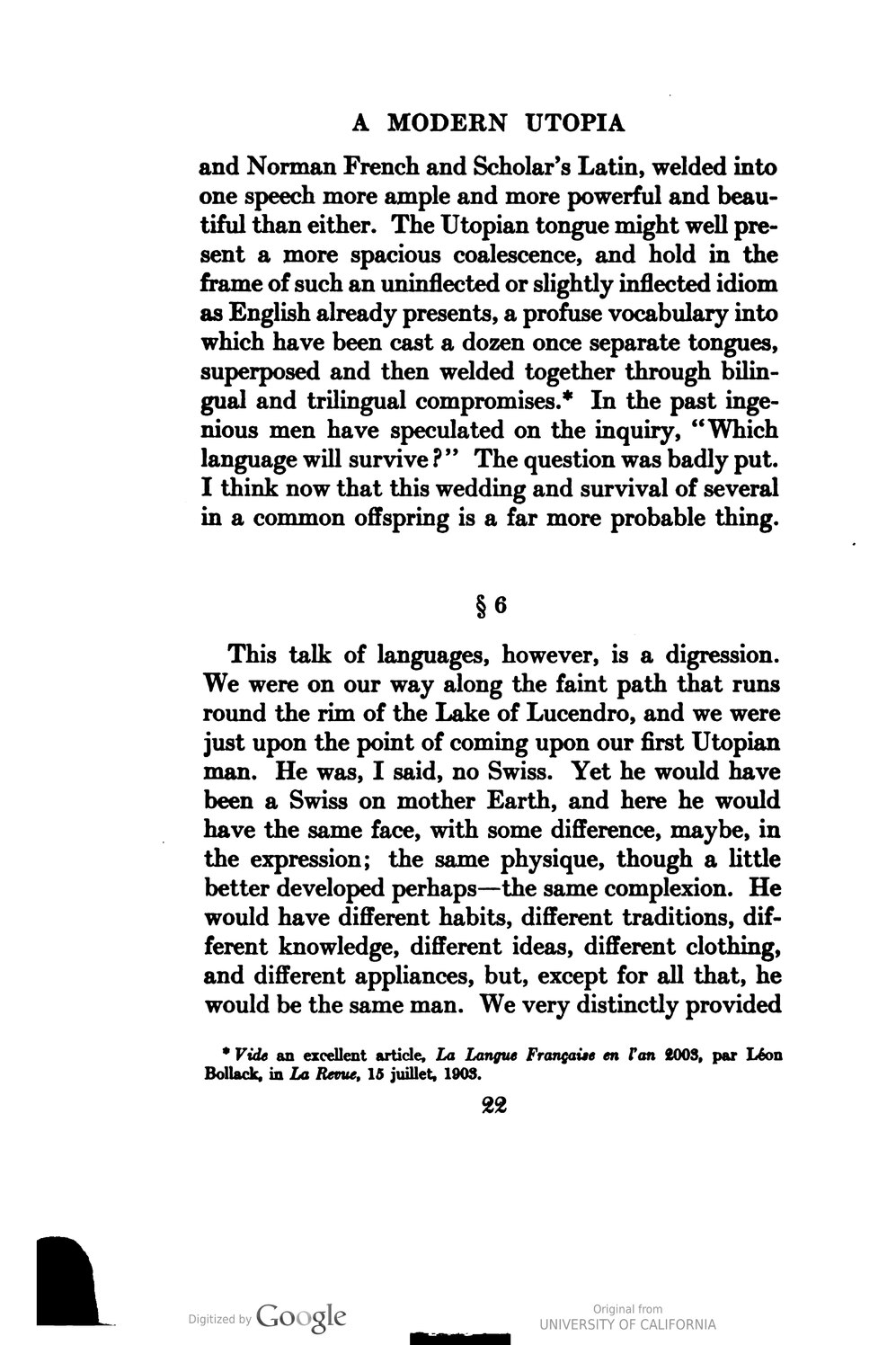A MODERN UTOPIA
and Norman French and Scholar's Latin, welded into one speech more ample and more powerful and beautiful than either. The Utopian tongue might well present a more spacious coalescence, and hold in the frame of such an uninflected or slightly inflected idiom as English already presents, a profuse vocabulary into which have been cast a dozen once separate tongues, superposed and then welded together through bilingual and trilingual compromises.[1] In the past ingenious men have speculated on the inquiry, "Which language will survive?" The question was badly put. I think now that this wedding and survival of several in a common offspring is a far more probable thing.
§ 6
This talk of languages, however, is a digression. We were on our way along the faint path that runs round the rim of the Lake of Lucendro, and we were just upon the point of coming upon our first Utopian man. He was, I said, no Swiss. Yet he would have been a Swiss on mother Earth, and here he would have the same face, with some difference, maybe, in the expression; the same physique, though a little better developed perhaps—the same complexion. He would have different habits, different traditions, different knowledge, different ideas, different clothing, and different appliances, but, except for all that, he would be the same man. We very distinctly provided
- ↑ Vide an excellent article, La Langue Française en l'an 2003, par Léon Bollack, in La Revue, 15 juillet, 1903.
22
